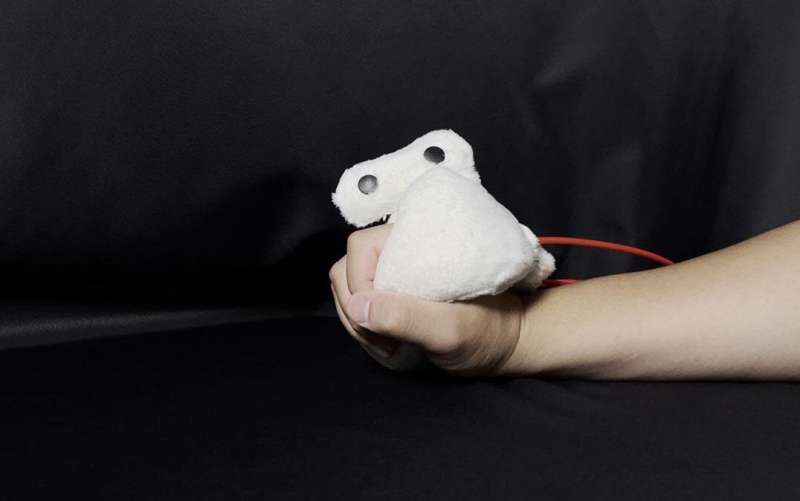Scared of injections? Try a wearable soft robot to ease aversion to needles

While most of us are never without our smartphones, robots may also soon become indispensable companions. It certainly seems so based on the recent experiments conducted by researchers in Japan, who developed a hand-held soft robot that can improve the experience of patients while undergoing potentially unpleasant medical procedures, such as injections.
During the campaign to encourage vaccination against COVID-19, public health officials recognized that some people are simply afraid of needles, which contributed to reduced vaccination rates. While the problems of patient anxiety and pain during medical procedures have been well studied, there remains a need to test and implement solutions to help patients.
In a recently published study in Scientific Reports, researchers at the University of Tsukuba have developed a wearable soft robot for patients to use during treatments, in an attempt to ease their pain. On being subjected to a moderate heat stimulus, the study participants who wore the robot experienced less pain than in the tests in which they did not wear the robot.
"Our results suggest that the use of wearable soft robots may reduce fear as well as alleviate the perception of pain during medical treatments, including vaccinations," says senior author Professor Fumihide Tanaka.
The soft, fur-covered robot the scientists called Reliebo was designed to be attached to the participant's hand; it contained small airbags that could inflate in response to hand movements. The researchers tested its effectiveness under various conditions based on the clenching of the participant's hand, while applying the painful thermal stimulus to the other arm that was not being used to hold the robot.
The researchers also measured the levels of oxytocin and cortisol (which are biomarkers for stress) from the patients' saliva samples. Additionally, subjective pain ratings were recorded using an assessment scale, and a survey test was conducted to evaluate the patients' fear of injections and psychological state before and after the experiments.
The researchers found that holding the robot helped relieve the experience for patients regardless of the experimental conditions used, and speculated that the feelings of well-being that can be created by human touch may have also been activated by the robot. "It is well known that interpersonal touch can reduce pain and fear, and we believe that this effect can be achieved even with nonliving soft robots," states Professor Tanaka.
This may be useful when actual human contact is not feasible, such as during pandemics. Future versions of the robot might use a controlled gaze or even AR (augmented reality) technologies to help build a connection with the patient or distract them from pain perception in various situations.
More information: Youchan Yim et al, A wearable soft robot that can alleviate the pain and fear of the wearer, Scientific Reports (2022). DOI: 10.1038/s41598-022-21183-7



















